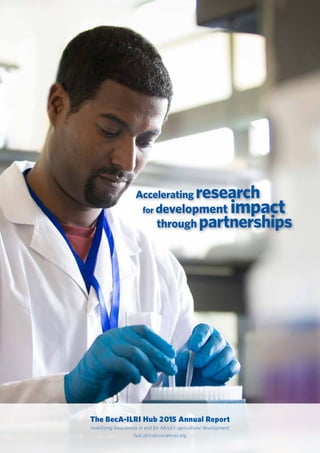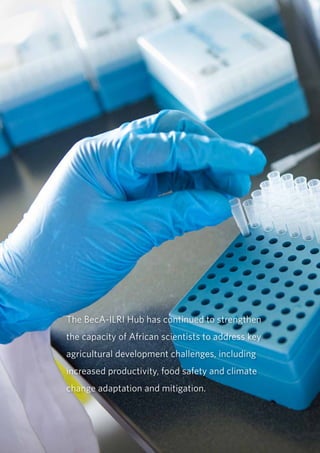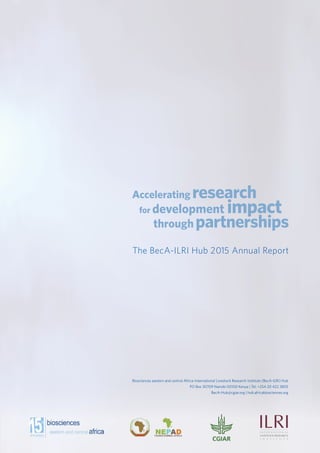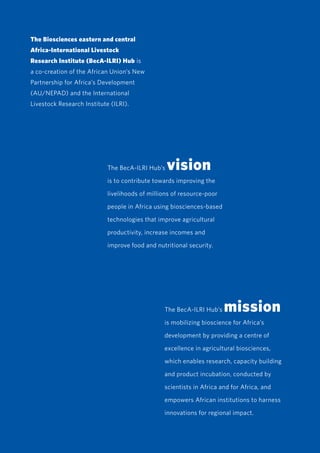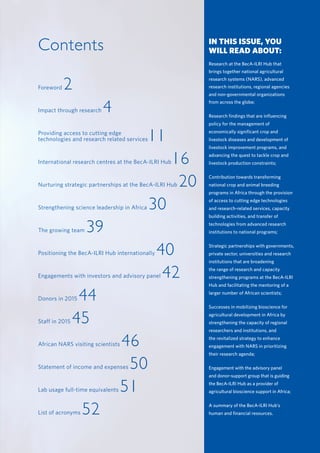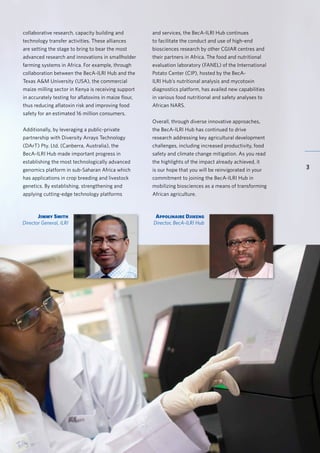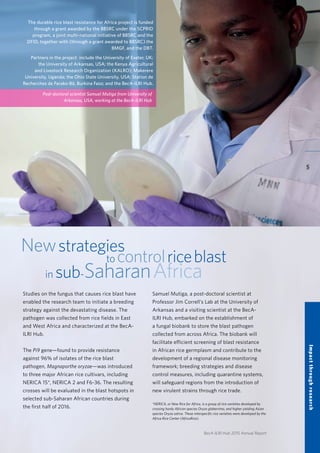The document is the 2015 annual report of the BecA-ILRI Hub. It summarizes the Hub's activities over the past year, including strengthening the capacity of African scientists through partnerships between national agricultural research systems, international research institutions, and the Hub. Some of the key research highlighted includes developing strategies to control diseases affecting important crops like rice, beans and maize in Africa. The report also discusses the Hub's efforts to improve livestock productivity through research on alternative forage options and control of diseases like African swine fever. It provides an overview of the Hub's partnerships, capacity building activities, technology platforms, and financial resources in 2015.
